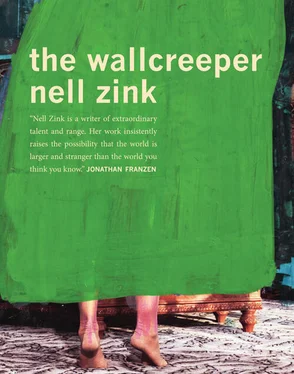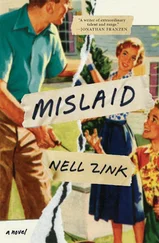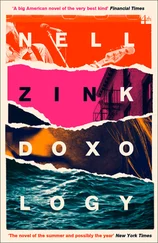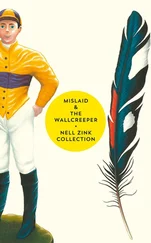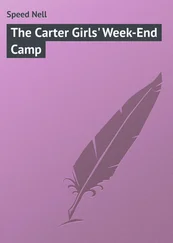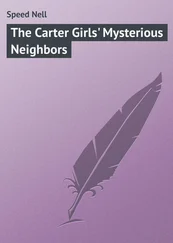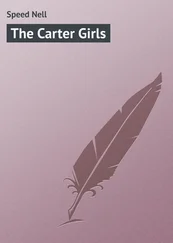He had named our bird after Rudolf Hess because its colors were those of a Nazi flag, with black on its chin for the SS in spring. To imply a certain tolerance for at least the form of his joke while rejecting its content, I had to suggest we name it after an anarcho-communist and came up, off the top of my head, with Buenaventura Durruti. But Rudolf stuck. So its name was Rudolf Durruti.
Sometimes I would sit and go over things Stephen had said during our whirlwind courtship, fitting them into a context I was learning only slowly. It was hard. He had told me so little about himself, intent on taking note of my little foibles so he could, for instance, surprise me with tickets to Berg’s Lulu.
The birds were Stephen’s intimate sphere. He didn’t have to be cool or funny or even appetizing about them. “Breeding and feeding,” Stephen called their lifestyle, making them sound like sex-obsessed gluttons (that is, human beings) instead of the light-as-air seasonal orgiasts they were in reality — ludicrously tragic animals, always fleeing the slightest hint of bad weather in a panic, yelling for months on end to defend territories the size of a handball court, having brief, nerdy sex and laying clutch after clutch of eggs for predators, taking helpless wrong turns that led them to freeze to death, drown, starve, or be cornered by hunters on frozen lakes, too tired to move.
To Stephen they were paragons of insatiable, elemental appetite. I saw them differently. I imagined two ducks, loyal partners. When the hunters cornered them, would they turn to face them, holding hands? Hell no. They would scatter like flies in as many directions as there were ducks. The duck who got hit would look up with his last strength to make eye contact with his lifelong friend, who would shake her head as if to say, “Hush now. Don’t rat me out just because you’re dying.” Love would conquer all.
When my parents and my sister came for Christmas, I finally got out to see the old city. I took my parents to a craft market so Stephen could sleep with my sister. She worked as a bikini barista in greater Seattle and liked a good time. But he didn’t sleep with her. She became irritable. She came into our bedroom with only panties on, asking to borrow my bathrobe. Stephen looked up for about a quarter of a second.
Berne was beautiful. It had colonnades like Bologna and boutiques like New York. On three sides of its grid, it fell away to a wild river in a gorge. The river enfolded the city like a uterine wall. Across the bridge bears stalked back and forth on the banks. It was too small to move through. All you could do was change positions in place. From the top of the church tower you could see all of it. Every speck. I went with my sister to cafés. She said she would marry Steve in a minute, but in Berne her eyes caressed everything and everyone. Everything in Berne had a delicious texture advertising a rich interior. Nothing was façade. It was clean all the way down forever and forever, like the earth in Whitman’s “This Compost.” I told Stephen I wanted to live there. He claimed in the old city you couldn’t have a washing machine because the plumbing was medieval.
Our apartment was fifteen minutes from downtown Berne. Our trolley stop was next to a gas station, which is where Elvis the Montenegrin worked behind the counter, selling beer and candy. His shift ended around the time Stephen went to work. I bought the International Herald Tribune every day.
Pretty soon Elvis knew I spoke English. Soon after that he knew what baked goods I liked and how I liked my coffee. He knew how to smile charmingly and ask for sex by name. The first time I invited Elvis to our apartment, I realized that even the hottest hot sex with Stephen had been all in my head. I had hypnotized myself because Stephen had a job that could support us both and secretarial work bored me. I saw that I had followed the chief guiding principle of the petty bourgeoisie in modernity and made a virtue of necessity in telling myself my husband was a good lover. Elvis raised my consciousness. But there are reasons they call it necessity, so I decided Stephen’s stability was good for me. Elvis was flighty. He had tight pants and a degree in superannuated theory from Ljubljana. He was always broke a week before payday. “I take what I want,” he liked to say. He was hopelessly in love with his own thoughts, watching them like a show on TV, zapping through the channels. But he trusted his eyes, which was nice. He would absent-mindedly taste my sweat, or try the weight and flexibility of my hair, comparing it to heavy gold as if he had pulled off the heist of the century. My eyes struck him as particularly expensive. Objectifying my body saved him from objectifying my mind. He moved gracefully through and around me like a wave. My thoughts were my business. I thought, Elvis is a good lover.
Stephen unexpectedly announced that he had been to a music shop and acquired two telephone numbers. “I’m an operator,” he explained. Even his taste in music was news to me. When I met him, his things were already in storage, and by the time the container with his vinyl collection arrived from Rotterdam, I was in the hospital. “Why, why, why do the wicked ones rule,” he sang suddenly. He joined a sound system where everyone was younger than he was. I thought maybe something about his narrow escape from fatherhood had inspired him to become younger. He grew his hair an extra half-inch and started drinking energy drinks. He used headphones because his music might upset Rudolf, who was molting. I never had to go to their shows. Stephen said he needed his space, because we were going to be together for sixty-plus years.
So his knob-twiddling was the first thing I found out about Stephen other than myself and birds. The birds were secret from his coworkers, but they were all I got.
In March, Rudolf became very restless. He would climb his pegboards up to the crown molding, let go and drop to the floor, then flutter from room to room like an autumn leaf tied to a string. He stopped saying twee-twee-twee and started cheeping like a sparrow and crying out in delirium like a skylark. Stephen said Rudolf wanted to find a nesting site and sing himself a girlfriend. He definitely seemed very driven. One Sunday morning at dawn (we were going to Lake Biel) we opened the kitchen window for him. Rudolf flew out, then back. He clung to the stucco outside and looked at me. Stephen said, “Go on, Rudolf. This is Switzerland. You’re safe!” Rudolf climbed straight up in short bursts of fluttering and was borne away on the wind. Stephen told me we should try again to have a baby, right now.
“What about zero population growth?” I objected.
“My mother and father were only children,” he said. “That means I’m entitled to four to replace my grandparents.”
“What about global warming?”
“If it weren’t for global warming, we’d be under an ice sheet a mile thick right now.” He gestured toward the mountains. “But look at us. Earth as far as the eye can see. I love global warming! And I love you!”
Something about the implied comparison made me nervous. I was pretty bad as wives go. Where Stephen was concerned possibly epoch-rending, world-destroying bad. But without me he’d be under an ice sheet, so maybe I was doing him a favor.
It was plausible. It was also not enough. I said I wasn’t ready. But I had sex with him, feeling like a very dutiful wife.
Soon after that I went out to dinner downtown with Elvis. It was the day after payday. He talked nonsense and made me laugh. We walked the colonnades and fetched up against the ramparts, facing in. You couldn’t look across the river. There was nothing there. Berne lived turned inward on itself. But it wasn’t self-sufficient; it was more like a tumor with blood vessels to supply everything it needed: capital, expats, immigrants, stone, cement, paper, ink, clay, paint. No, not a tumor. A flower with roots stretching to the horizon, sucking in nutrients, but not just a single flower: a bed of mixed perennials. A flower meadow where butterflies could lay eggs and die in peace, knowing their caterpillars would not be ground to pulp by the mowers. Continuity of an aesthetic that had become an aesthetic of continuity. That was Berne. I leaned against the city wall and Elvis kissed me, closing his eyes so as not to see the bears. It was dark and freezing cold.
Читать дальше
Конец ознакомительного отрывка
Купить книгу
